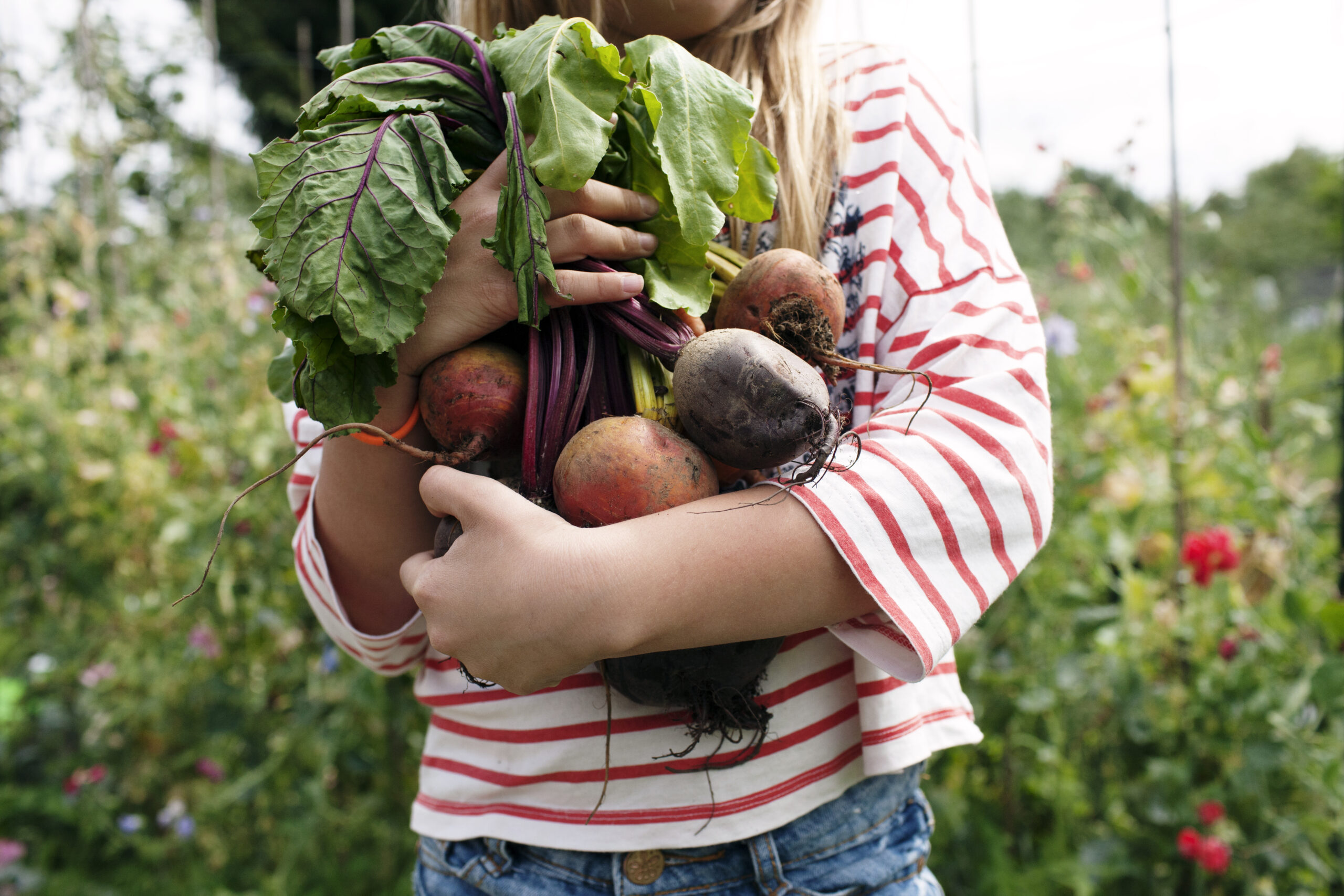Beets, carrots, radishes, yams — you’ve probably been eating root vegetables all of your life. But what exactly are root vegetables? And which ones are best to cook with in Tennessee?
Here’s everything you need to know.
What are root vegetables?
Root vegetables are the parts of plants that grow underground, which means they absorb a high amount of nutrients from the soil. Technically, not all root veggies are roots; Some are bulbs or tubers that store nutrients and water to feed the plant in colder months, which is another function that makes them nutrient-rich.
Root vegetables break down into the following categories:
- Bulbs* (fennel, onions)
- Corms (water chestnut)
- Rhizomes (ginger, turmeric)
- Taproots (beets, carrots, parsnips)
- Tubers (potatoes, yams)
- Tuberous roots (sweet potatoes, yucca)
*There is some debate as to whether bulbs are technically root vegetables because they don’t grow as deep in the soil. Some are technically alliums, but they’re included here since they have similar nutritional value.
Bulbs (short stem, fleshy leaves)
- Fennel
- Garlic
- Leek
- Onion
- Shallot
- Scallion
Corms (short, vertical, swollen)
- Japanese potato
- Taro
- Water chestnut
Rhizomes (continuously growing, horizontal stem)
- Ginseng
- Lotus root
- Turmeric
Taproot (straight, thick, tapered)
- Beet
- Carrot
- Celeriac
- Daikon
- Jicama
- Parsnip
- Radish
- Rutabaga
- Turnip
Tubers (thick, rounded, budding)
- Jerusalem artichoke or sunchoke
- Potato
Tuberous root (thick, fleshy, no buds)
- Cassava
- Sweet potato
- Yams
What nutritional value do root vegetables have?
Nutritionally, most root vegetables have a high concentration of antioxidants, iron and Vitamins A, B and C, in a form that is well absorbed by the body. They’re also packed with slow-burning carbohydrates and fiber, which help you feel full, boost energy levels, and help regulate blood sugar and digestion. Root vegetables are also low in calories and saturated fat, which makes them a healthy long-term addition to most diets.
While everyone can enjoy root veggies, most are starch, a kind of carb that’s turned into glucose for energy. People with diabetes should be careful to balance root vegetable intake with other carbs and sugars to prevent blood sugar spikes.
When adding root vegetables to your diet:
- Aim for at one serving per day.
- Make that the only starch on your plate (so don’t pair a serving of pasta or rice with a serving of yams).
- Don’t eat the same root vegetables all the time. Variety is key to getting all the nutritional benefits.
When are root vegetables in season in Tennessee?
Most root vegetables are available (and delicious) year round in Tennessee, but they tend to peak fall through spring. One exception is beets, which are best summer through fall. When they’re in season, root vegetables are juicier and have a richer flavor and more natural sweetness.
Click here for 11 fruits and vegetables to eat year-round in Tennessee
How do you pick the best root vegetables?
When picking root vegetables, choose hard over soft. Opt for a root that remains firm and hard when squeezed (unlike fruit, which should have some give), and look for a smooth surface without gashes or bruises.
If your root veggie has leafy greens attached (beets, carrots, etc.) look for stems and leaves that are firm and bright, which indicates they’ve been recently harvested.
How do you store root vegetables?
Store root veggies in a cool, dark, preferably humid place. If you store them in the fridge, keep them in a paper or plastic bag in the crisper. (Storing them uncovered can cause them to soften and spoil quickly.)
In Tennessee, get fresh root vegetables by:
- Visiting a local farmers market
- Shopping in the locally grown section at your grocery store
- Trying community-supported agriculture, or CSAs, which allow farmers to get seasonal crops directly to your table
- Visiting Pick Tennessee, which breaks down produce by season, vegetable and farm
- Taking a field trip to a local farm using org
What’s the best way to cook root vegetables?
In general, there are 3 steps to cooking with root vegetables:
- COOK: bake, roast, mash, grill, saute, steam
- SAUCE: butter, oil, yogurt, sour cream, honey, vinegar
- TOP: toasted nuts, seeds, crumbled cheese, spices, herbs
If you’re just starting to eat root vegetables:
- Start by adding them to soups and casseroles you already like.
- Next, bake, mash or roast them as a side dish. These cooking methods deepen the flavor of the vegetable and allow you to determine which ones you like most.
- Once you’ve some favorites, try sauteing, braising, barbecuing or searing, which will keep more of the root veggie flavor front and center.
- Finally, try shaving your root veggies and eating them raw. Carrots, beets, radishes, and jicama are all delicious prepared this way, especially marinated or dressed simply with salad dressing.
- You can also bake your favorites into chips.
And remember: don’t throw out tops. Carrots, radishes, fennel and beets all have greens that are delicious cooked or pureed into pesto.
For a full guide to cooking in fall and winter in Tennessee, click here.
Get more information about specific health terms, topics and conditions to better manage your health on bcbst.com. BlueCross BlueShield of Tennessee members can access wellness-related discounts on fitness products, gym memberships, healthy eating and more through Blue365®. BCBST members can also find tools and resources to help improve health and well-being by logging into BlueAccess and going to the Managing Your Health tab.





